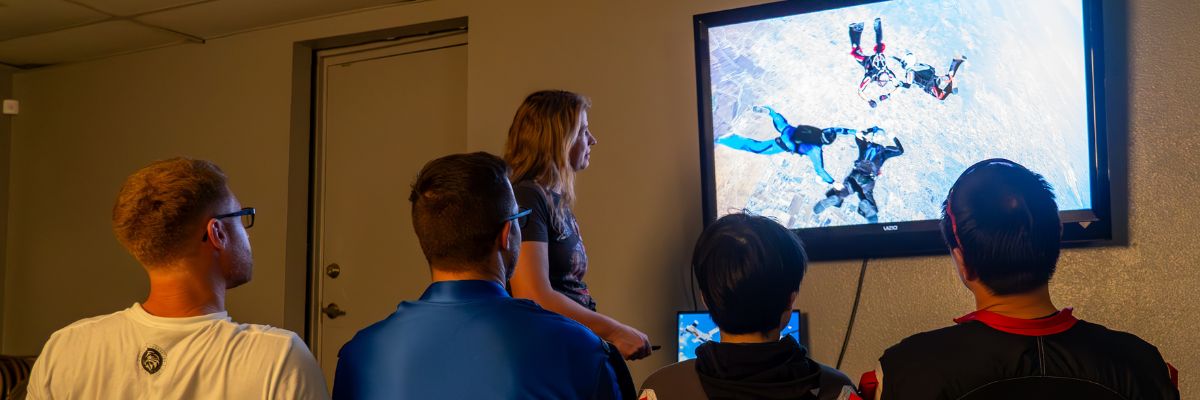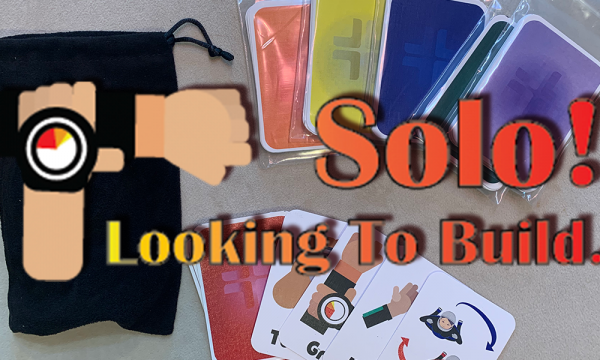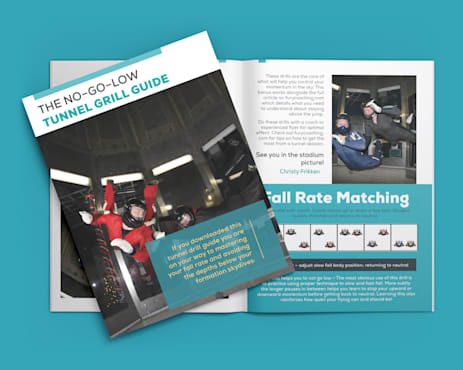Your Skydiving Team Goals Suck: Here’s How to Fix Them
Wednesday, November 20, 2024

Goals? Yeah, we all got ’em. Wanna win Nationals? Score a 15-point average? Crush that next competition? Awesome. But setting the wrong kind of goals is a trap and can lead to rigid expectations, poor performance, and a miserable team at the big meet.
In this article, I’m breaking down the difference between outcome and process goals, why you need BOTH, and how to build a goal-setting strategy to take your team to the next level.
The Problem with Focusing on the Finish Line
Outcome goals are the grand finale of your season. It’s what you’re ultimately aiming for. A healthy team has these – on Rhythm for example – we were obviously gunning for the top slot and a world meet.
For other teams, it may be:
- Beat a rival team
- Snag gold in the Intermediate category
- Hit a 15-point average
- Finish in the top half of advanced
Outcome goals are exciting. They give you something to shoot for. But here’s the kicker: they’re often out of your control. Weather sucks? Judging’s off? Slow draw? Other teams are on fire? Suddenly, your outcome goal is out of reach, and it feels like an otherwise amazing season is busted.
Building Blocks Matter More Than End Results
Process goals are the nitty-gritty, the camp-by-camp grind. It’s what you DO to reach those big, shiny outcome goals. Think of them as the bricks, the mortar, the foundation of your skydiving season.
In skydiving, your process goals might look like this:
Long-term:
- Visualize a jump every day.
- Have positive debriefs.
- Nail your dive prep every time.
- Be the supportive teammate everyone wants.
- Learn a new class of blocks.
- Set a targeted daily goal and debrief it.
- Execute the last jump each day with the same energy as the first.
Short-term:
- Laser-focused level control.
- Break from exit in under 2 seconds.
- Blocks stay in a 14’ radius.
- Average random key time decreased by 20%.
- No breathing between points.
- High flow on random jumps.
Process goals are 100% in your control. You can’t control the weather, your competition, the draw, or the judges, but you CAN control your effort, your mindset, and your training.
Small Wins, Big Results: The Power of Process
Focusing only on outcome goals is a recipe for end-of-year disappointment. You miss your only big goal, and despite lots of improvement, learning, camaraderie, and joy, your whole season is a “failure.”
But process goals are like building a skyscraper. The outcome is that towering building, but the process goals are laying each brick, pouring the concrete, and wiring the whole thing up. You celebrate each floor, each milestone, knowing it’s all part of something bigger. Even if your skyscraper doesn’t break the world record at the end, you are still standing high and proud.
How To Set Non-Sucky Goals
Ready to set your season’s goals?
- Define Your Outcome Goal: What’s the big dream? “Win gold in Advanced 4-way at Nationals” – that’s a goal.
- Break It Down: What skills do you need for that goal? Break it down into bite-sized pieces. “Improve block technique, nail exits, build team communication.”
- Get Actionable: Turn those skills into process goals you can track. “Visualize daily, exit break under 2 seconds, say at least one good thing in the debrief.”
- Track and Adjust: Track your progress. Keep a log each training session of how close you are to your goals.
- Celebrate the Wins: Every little victory counts. Improved your exit? Stayed focused? Great prep? Hell yeah! Celebrate those wins; they’re all part of the journey.
Conclusion
Outcome goals are awesome, but they’re just the top of the skyscraper. To truly get value from goal setting, you need supporting process goals. They’re the brick-by-brick driving force behind team success.
Nail a process goal right now – Sign up to Fury Coaching’s newsletter to keep the great strategies coming!
Tags: 4way, 8way, competition, team, training



